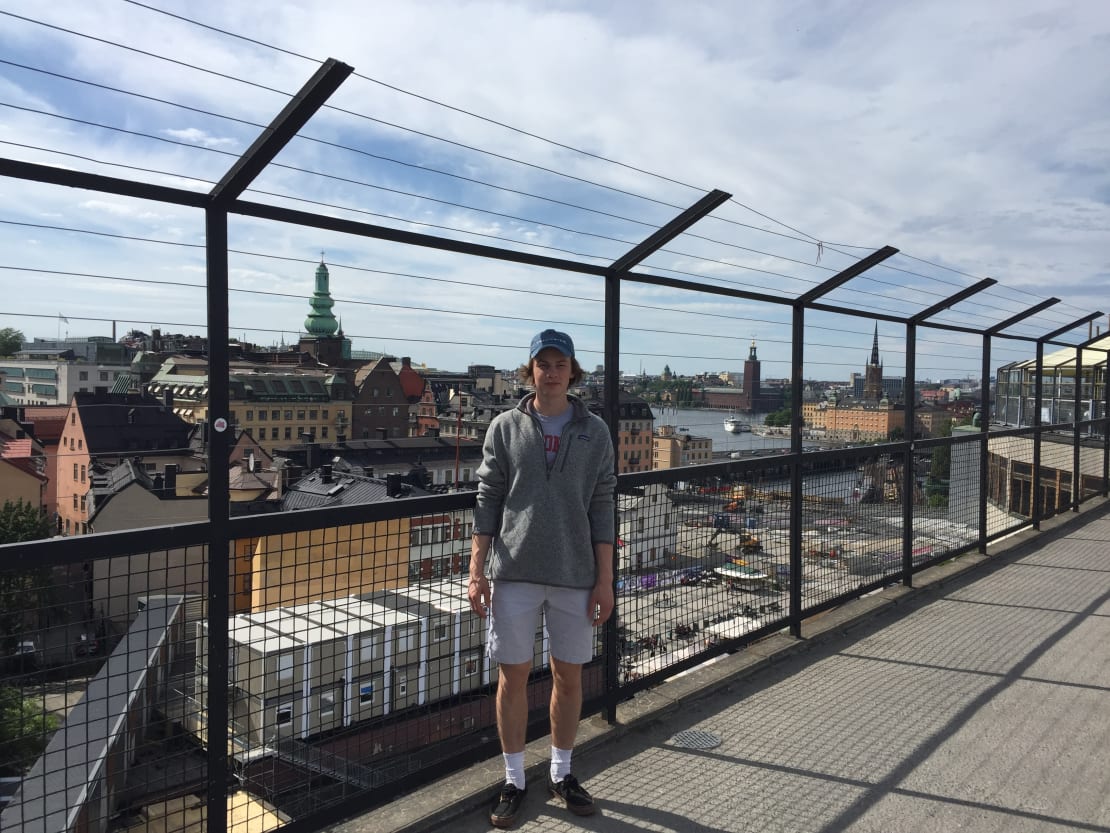International Research Experiences for Students (IRES) is a program funded by the National Science Foundation to support active participation of US undergraduates in international research projects. Vanessa Esaw, Nick Kulacz, Nick Jensen, Jack Nuckles, and Samantha Pedek participated in the IRES program through UW–River Falls to work on IceCube research for the summer at Stockholm University.

During my summer abroad, I worked with Dr. Jon Dumm, who is searching for an excess of neutrino events originating in the plane of the Milky Way. Dr. Dumm’s analysis is designed to look for a diffuse neutrino flux from the galactic plane in agreement with a map of where pion decay is expected to occur. However, this analysis is sensitive to a neutrino flux from point sources that are not necessarily distributed as the pion decay map predicts. We simulated four possible models of cosmic-ray source density in the galaxy as proxies for possible distributions of unresolved neutrino point sources. In doing so, we established limits on the total flux from various numbers of sources to which the primary pion-decay-based analysis is sensitive.
My experience with IceCube started from my fascination with the IceCube posters in the UW–Madison physics building, and I reached out to Professor Halzen about possible research opportunities. Since then, my experiences with IceCube have led me to major in physics, a subject that has interested me my entire life but that I never seriously considered studying in college.
After spending the summer surrounded by intriguing science and passionate scientists, I returned to the US with more excitement about physics than ever. I learned about the attention to detail and perseverance required to conduct physics research and gained valuable coding experience in two languages. During the academic year, I will put the skills I learned to immediate use as I continue my work with Professor Halzen and Dr. Chris Wendt in Madison.
In addition, this summer was as much of a cultural experience as it was a research experience. I gained an international perspective in politics, made use of the excellent public transport network throughout Europe, ate new foods, watched a presidential campaign unfold from a distance, and enjoyed living in a country both similar and different from my own. Therefore, I am extremely grateful to the individuals at NSF, UW-River Falls, Stockholm University, and IceCube who worked to offer this amazing experience.
See more stories featuring summer internships: